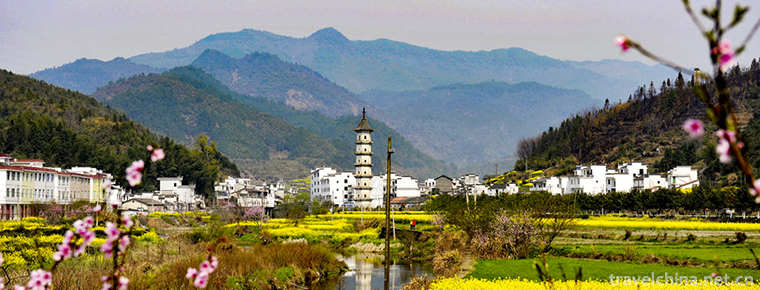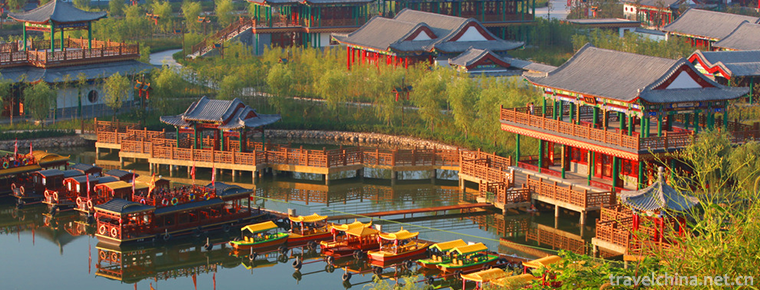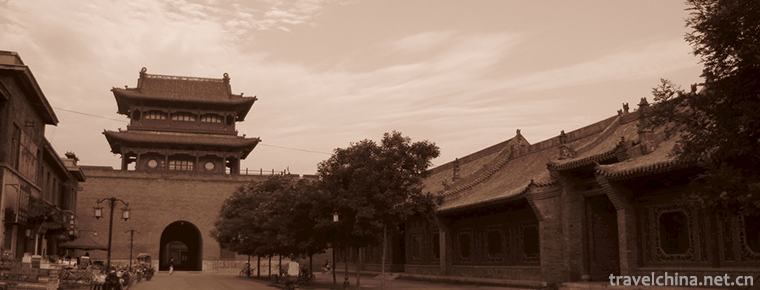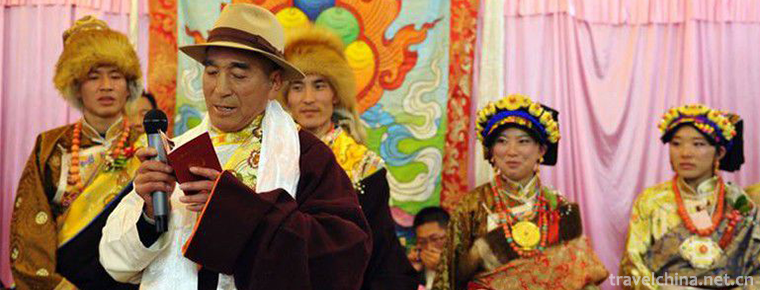Xiangsha Bay Scenic Spot in Dalat Banner Ordos
Xiangsha Bay was opened as a tourist attraction in January 1984, listed as a national line scenic spot by the National Tourism Administration in 1991, turned into a private joint-stock enterprise in 1999, and was rated as a national 4A-level tourist attraction by the National Tourism Administration in 2002. More proud of that, in January 2011, Xiangsha Bay was rated as a national 5A-level tourist attraction, which is a collection of sightseeing and leisure vacation. As one of the large comprehensive desert leisure scenic spots.
Xiangsha Bay, the first desert resort in China, is a large comprehensive desert leisure scenic spot integrating sightseeing and leisure vacation. It is located at the easternmost end of the famous Kubuqi desert in China. It is the nearest desert tourist resort in China to the mainland and Beijing. It is also a national AAAAA-level scenic spot and a demonstration of national cultural industry. Base. It has the longest camel fleet in the world - more than 500 peaks.
Xiangsha Bay is also home to photographers all over the world. The annual International Photography Week opens here in mid-July.
"I am a grain of sand" - this is the first heart of every Xiangsha Bay people to greet every distant visitor.
"A Grain of Sand World" - This is the endless joyous realm of every Xiangsha Bay people and guests, which is a free and free fairy in nature. In this sandy world, there is a seemingly surreal but realistic paradise.
Liansha Resort Island - Fusha Resort Island - a grain of Sand Resort - Yuesha Leisure Island - Xiansha Leisure Island.
At the 2008 China Yellow River Tourism Conference, Xiangsha Bay was named "50 Sceneries of the Yellow River in China".
Xiangsha Bay, National AAAAA Scenic Area, National Cultural Industry Demonstration Base, China's first desert leisure resort. Xiangsha Bay is a desert resort.
Yinken Xiangsha (Xiangsha Bay) occupies the first place of Xiangsha in China and is called "the King of Xiangsha". Xiangsha Bay is 110 meters high and 400 meters wide. It is facing Dachuan along rolling dunes. Its leeward direction is sunny. Its terrain is crescent-shaped and its slope is 45 degrees inclined, forming a huge echo wall of sand dunes. When the sand is dry, tourists climb up the soft ladder or take a cable car to climb up the top of Yinken dune and slide down. The dune will make a booming sound, which is as light as the croak of frogs, as loud as the roar of cars and airplanes, and as loud as thunder and thunder, more like an exciting symphony.
The miracle of Sand Ming in Xiangsha Bay is still a mystery. For thousands of years, people can not explain the cause of Sand Ming, but give it many beautiful legends. There are different opinions about the causes of Xiangsha. The theory of sieving and eliminating, friction electrostatic theory, geographic environment theory, resonance box theory and so on are all different from each other. The mystery of Xiangsha is still being explored.
A long time ago, a brave and fighting army crossed the Yellow River and entered the Kubuqi Desert. A Mongolian soldier named Bozhiwa had to stay here because of his wounds.
When the sun was red and Buzhiwa was so thirsty that he did not even have the strength and courage to look for water, a wolf who had been separated from his mother came into Buzhiwa's sight and regarded him as a relative, which encouraged Buzhiwa greatly. Buzhiwa named the wolf Batutai. They lived in harmony and depended on each other for their lives.
Bozhiwa and Batu continue to move forward, looking for their own homes. Suddenly, they saw a place full of water and grass in the vast desert. The water of a clear lake is rippling. There was a mist and a few fragrances on the lake. A sacred goddess appeared and told Bozhiwa kindly and solemnly that he would spare no effort to protect the sacred place, Junlan Lake. Bozhiwa was solemnly appointed.
There is a fishing and hunting tribe near Lake Junlan. People live in shacks built of firewood, where people respect and love each other, live in harmony, and seem to take care of the world with a kind of innate love. There is no war, no discrimination, people are far away from loneliness, feel warm. Bozhiwa decided to stay here with Batu.
Bozhiwa frankly told the leader of the city where McGon himself came from. To his great surprise, Magong did not mind that people here did not have a trace of discontent with him and gave him unlimited tolerance. He found a large number of translucent fish in Lake Junlan, Crystal Fish. People love it very much and never hunt it, because every little crystal fish, the desert will move forward for miles, which will pose a great threat to the tribe's living environment.
Jingyu lives only in Junlan Lake. Its unique shape and mysterious legend make the emperors and imperial concubines salivate and send troops to hunt and fish. Mai Bulletin told them that Jingyu was the patron saint of Junlan Lake. Every little one went into sand for miles. The Royal Army turned a deaf ear. In order to protect the crystal fish, the people of the tribe fought against the fishermen. Eventually, the Royal Army captured a lot of Crystal Fish.
The lake of Junlan, which has lost its crystal fish, makes the gods angry. It is impossible for all forces to move the vast desert and cover the lake. Magong's daughter, Ruiqin, was unwilling to become a princess. She jumped into Junlan Lake and turned into a crystal fish.
After a long and arduous escape from the prison, Buzhiwa came to Junlan Lake, which has become a desert. Batu, who changed from wolf to wolf, led the wolf pack and Bozhiwa to disappear into the desert sky after successfully resisting the enemy's invasion. They did not die, but reported everything here to the Jade Emperor. The Jade Emperor sent Zhang Guolao and waved the magic brush. The Hantai River appeared, and the desert stopped and never went east.
As time goes by, lamas chant sutras and blow trumpets. This is a memory of Bozhiwa and a trumpet for the protection of the ecological environment. Gradually, the Mongolian herdsmen who lived here called the desert "Buremangha". "Buge" means lama's trumpet and "Manha" means desert. This meniscus-shaped "Buremangha" is called "Xiangsha Bay".
Legend has it that in ancient times, there was a fairy who traveled all over the world and came here to have a rest in the sand. He played music to relieve his fatigue, and wonderful divine music permeated the sand. Later tourists can hear the Divine Comedy whenever they move sand here.
Some people say that Buddha Sakyamuni preached sutras all over the world and came to the Ordos Plateau one day to recite sutras to his followers. The chanting sound remained in Xiangsha Bay. From then on, people were able to listen to Buddha's teachings and avoid going astray.
There are many more legends about Xiangsha Bay. Scientists have put forward various explanations from different angles: some people believe that the sand on the surface of dunes contains a lot of quartz. When the external force pushes the sand, the quartz sand rubs against each other to generate electricity, and the sound of sand is the sound of discharge.
Others believe that Xiangsha Bay is crescent-shaped, and this terrain causes the echoes of sand sliding.
Others believe that the evaporation of water under sand dunes forms an invisible vapor wall. On the ridge line of sand dunes, strong light forms a hot air layer. The vapor wall and the hot air layer form a "resonance box", and the sand layer will be stirred or sound when the wind blows.
In Mongolian, Xiangsha Bay is called "Buremangha", which means "dunes with trumpets". The sand dunes here are continuous, and what's more amazing is that the sand here can sing. Experience the famous sand-rowing movement here, from the top of the tall dunes, you will hear the dunes around you make strange sounds, light as frogs croaking, heavy as the roar of aircraft and cars, as well as thunder and thunder, which can be called "rare in the world, the most in China", which is the name of Xiangsha Bay.

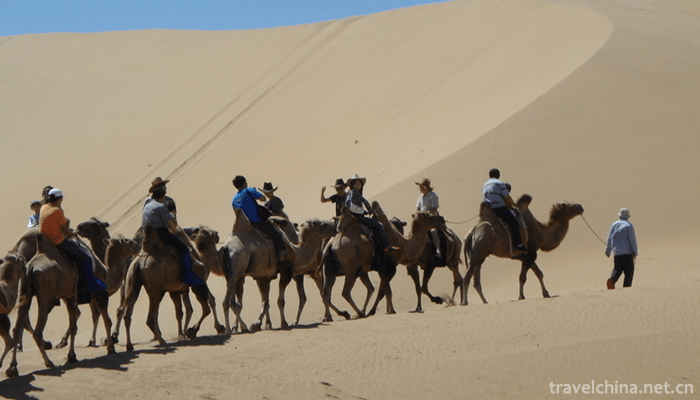
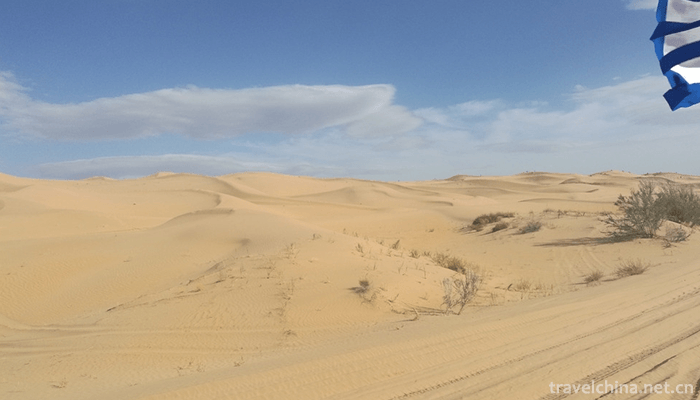
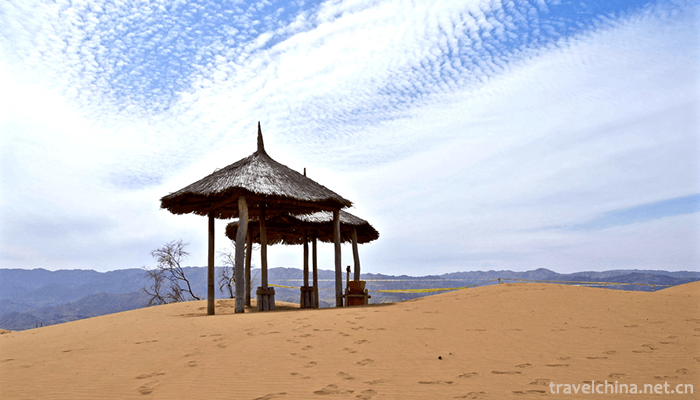
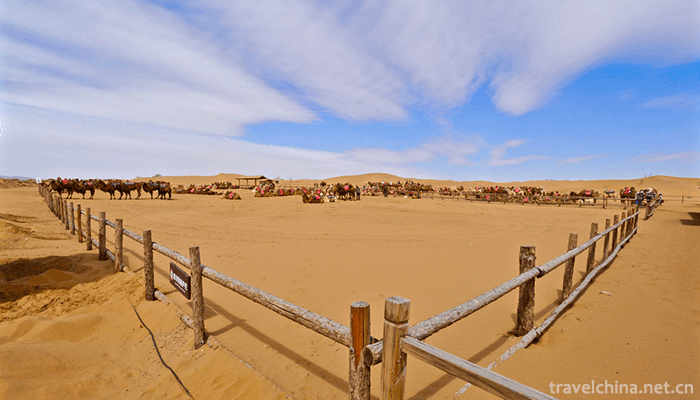
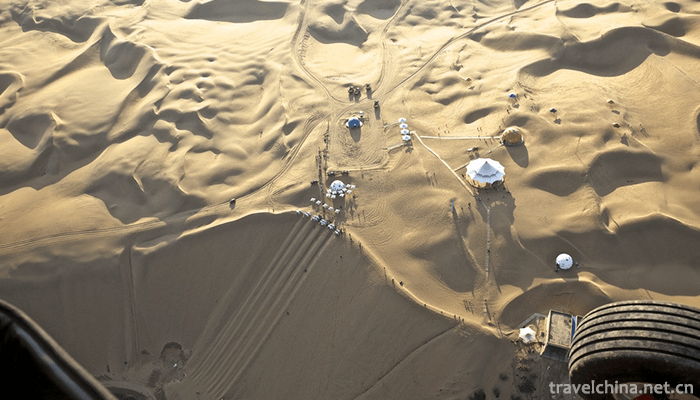

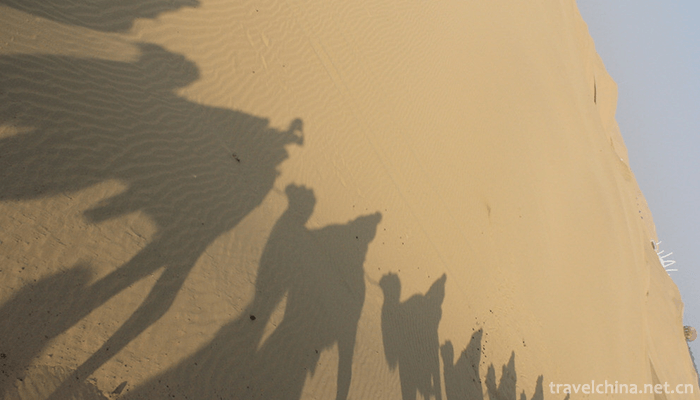




Xiangsha Bay Scenic Spot in Dalat Banner Ordos
-
Wuyuan County
Wuyuan County, now under the jurisdiction of Shangrao City, Jiangxi Province, is one of the six counties in ancient Huizhou.
Views: 202 Time 2018-11-11 -
Heng Dian World Studios
Hengdian Film and Television City is a large-scale comprehensive tourist area which integrates film and television, tourism, vacation, leisure and sightseeing
Views: 464 Time 2018-12-07 -
Leifeng Memorial Hall in Fushun
The Leifeng Memorial Hall in Fushun City is located at No. 61, East Section of Peace Road, Wanghua District, Fushun City, Liaoning Province. It covers an area of 99900 square meters, near the army sta
Views: 203 Time 2019-01-12 -
Harbin Amusement Park
Harbin amusement park is located at the junction of the outer Road area and Nangang District. It was founded in 1958. Originally known as Harbin Cultural Park, it covers an area of 22.8 hectares.
Views: 120 Time 2019-01-13 -
Pingyao Ancient City Scenic Spot
Pingyao Ancient City is located in Pingyao County, central Shanxi Province. It was founded in Xuanwang Period of Western Zhou Dynasty (827-782 BC).
Views: 170 Time 2019-02-07 -
Shanghai Changfeng Ocean World
Shanghai Changfeng Ocean World belongs to the world's largest aquarium chain brand of Merlin Entertainment Group, which is the first and second largest in Europe
Views: 244 Time 2019-03-17 -
Eighteen Sayings on Tibetan Wedding Banquet
The Eighteenth Tibetan Wedding Banquet is a kind of folk oral literature spread in the Tibetan inhabited areas of the eastern agricultural region of Qinghai Province. Its manifestation is the eighteen
Views: 138 Time 2019-04-07 -
Brewing Techniques of Sufu
Sufu brewing technology, the traditional technology of Haidian District, Beijing, is one of the national intangible cultural heritage.
Views: 224 Time 2019-04-30 -
Qin opera
Qin Opera, also known as Bangzi Opera, is a traditional drama in Northwest China and one of the national intangible cultural heritage.
Views: 249 Time 2019-06-10 -
Wutaishan Buddhist Music
Wutai Mountain Buddhist music refers to the traditional Buddhist music that has been circulating for a long time in the temples of Wutai Mountain, the top four famous mountains of Chinese Buddhism. Wu
Views: 136 Time 2019-06-29 -
Legend of Yin Jifu
The "Yin Jifu Legend" which was listed as the first batch of intangible cultural heritage in Hubei Province, made a sensation forum about "Chinese poetry ancestor, Taishi Yin Jifu of th
Views: 198 Time 2019-07-13 -
Xiling Snow Mountain
Xiling Snow Mountain, located in Dayi County, Chengdu City, Sichuan Province, is only 95 kilometers away from Chengdu, with a total area of 483 square kilometers. It is a world natural heritage, giant panda habitat, AAAA tourist attraction and national key scenic spot.
Views: 338 Time 2020-11-06
